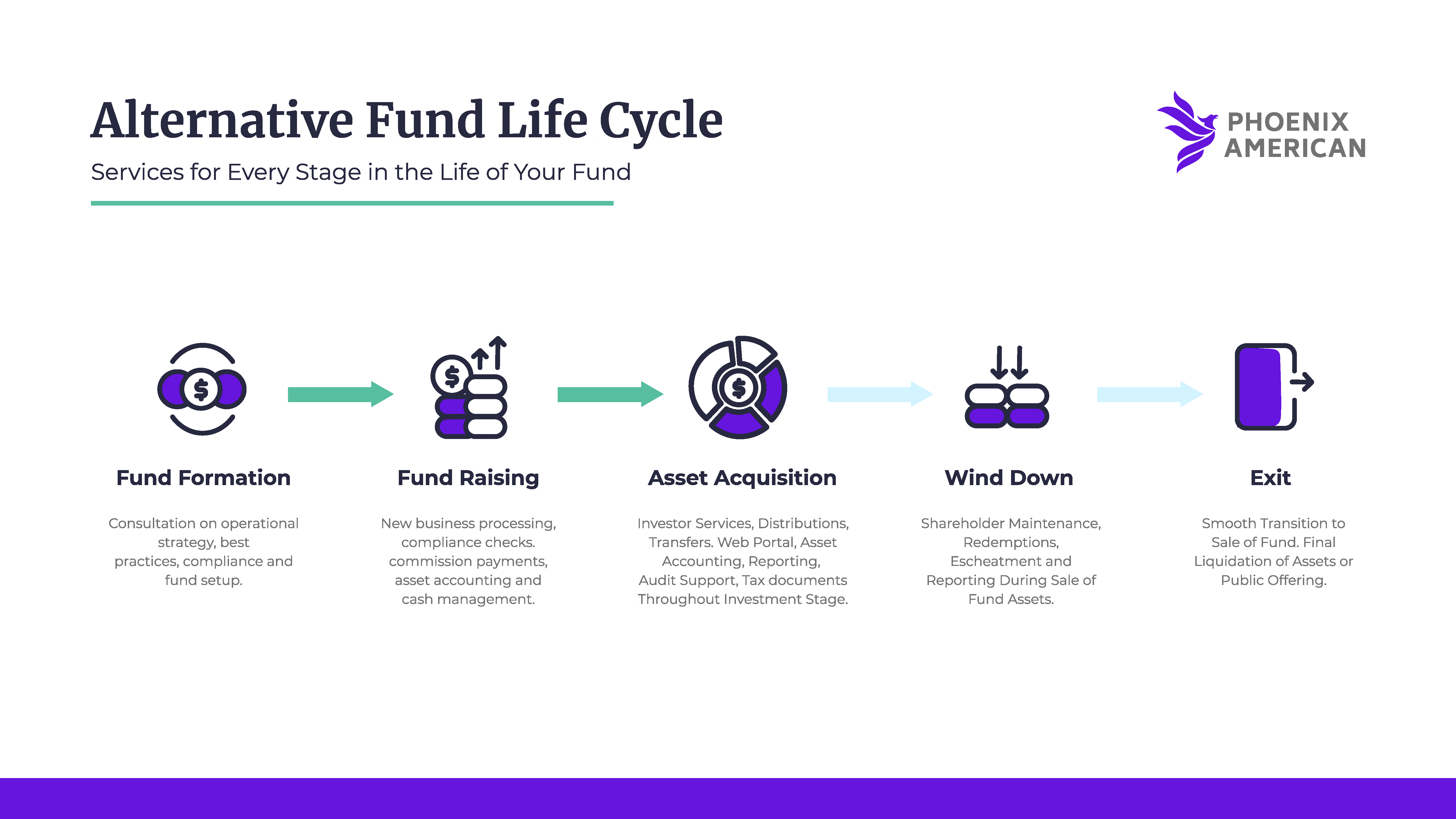A solid relationship with a quality transfer agent throughout the life of your fund is critical to your success as a fund manager for a number of reasons. Maintaining regulatory compliance, limiting operational risk, satisfying distribution partners and elevating the investor experience is all greatly facilitated by a transfer agent that understands your fund, is aligned with your goals and is equipped to represent your investment product. In each stage of your fund’s life cycle, your transfer agent is in a position to help you achieve your objectives.
Fund Formation
Even before you launch your fund, your transfer agent can advise you on the back-office implications of the commitments in your fund formation document that may be undesirable. Your fund formation attorney may not be aware of the real-world operational costs and complications of certain fundraising strategies, waterfall structures, distribution schedules and compliance procedures. Consulting your transfer agent early, during the formation of the fund, ensures operational best practices are built into your fund structure that will streamline processes, reduce risk and limit costs.
Fund Raising
As your fund ramps up and investor capital flows in, your transfer agent will be central to the process, receiving new investment documentation, ensuring completion and accuracy of all investor information and providing your investors with a positive first impression. Your transfer agent will process new investments, create a database specialized for future service processes, perform required compliance checks, calculate and pay sales commissions and manage the incoming funds for your deployment to portfolio assets. The transfer agent will also communicate with investors, confirming their admittance to the fund and establishing investor web portal access to their account information. New investors will be impressed with the speed, efficiency and thoroughness of the process if the transfer agent is performing these functions well.
Asset Acquisition & Management
Throughout the stages of your fund’s life cycle, your transfer agent will be in regular contact with your investors representing your fund in every way: answering process questions, liaising as needed with financial advisors, communicating account information and fund news, paying distributions, processing transfers and issuing tax documents. Your transfer agent will also support you with database reporting, audit support and asset accounting. Your relationship with your transfer agent will be an important ongoing partnership.

Wind Down
As portfolio assets are liquidated and your fund winds down, your transfer agent partner will report on liquidated assets, process redemptions, perform escheatment and communicate with investors as the normal course of fund activity changes. The performance of your transfer agent will be important. It can be an unsettling time for investors. The stability and consistency of your transfer agent’s performance provides assurance for investors and confidence in your brand.
Exit
Your investors are your most important source of future investment capital. The performance of your transfer agent partner during the final stage of your fund should complete the investor experience in a way that encourages reinvestment in your next fund. Promptly delivered final distributions, statements and tax documents along with any marketing or communication of appreciation are ways your transfer agent partner can leave investors with a favorable impression. Whether fund assets are liquidated or the fund goes public, your transfer agent should be able to manage a smooth transition.
A transfer agent providing outsourced back-office services allows you as fund management to concentrate on raising capital and managing portfolio assets. The provider you choose should be as experienced and equipped at serving investor needs as you are in generating investor returns. Your transfer agent represents you to investors from the first stage to the last. Be sure that the firm you choose is as focused on the strength, character and ethos of your investment brand as you are.



